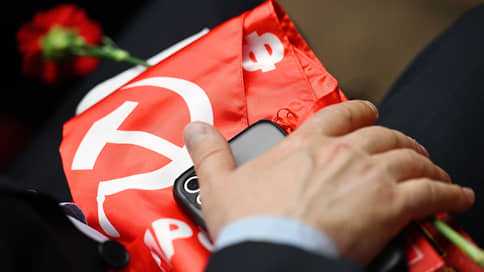The Communist Party was unable to appeal the results of the election draw in Ulyanovsk
[ad_1]

The Communist Party of the Russian Federation failed to cancel through the court the results of the drawing of places for parties on the ballot in the elections to the Ulyanovsk Legislative Assembly. According to its results, she was in fourth place, and the “Communists of Russia” – in first. The plaintiffs insisted that during the drawing of lots, the principle of random sampling was violated: the sheets with numbers were stacked in balls so that it was possible to understand where the first three numbers were. But the court agreed with the electoral commission, which assured that the communists were simply unlucky.
The drawing of lots to determine the places of parties on the ballot for the autumn elections to the Ulyanovsk parliament took place on August 1. According to its results, the first place went to the Communist Party “Communists of Russia” (KPKR), the second was United Russia, and the Communist Party received No. 4. Representatives of the Communist Party of the Russian Federation, who consider the KKKR a “spoiler party”, were outraged. “Not all supporters of the Communist Party of the Russian Federation know that there are also Communists of Russia, and when they see the words “Communist Party” in the first line of the ballot, they can put a tick in front of it,” the party explained.
Immediately after the draw, the head of the regional committee of the Communist Party of the Russian Federation, Alexei Kurinny, posted a video of the draw on his Telegram channel and expressed doubts about its honesty, recalling that “this spoiler of the Communist Party of the Russian Federation receives the first numbers in the party ballots during the last three regional campaigns.”
In a subsequent lawsuit filed with the court, representatives of the Communist Party indicated that a transparent lottery drum and balls from two halves (transparent and blue) were used in the draw. But the election commissioners put the folded sheets with numbers into the balls “according to a different principle”, “without using the method of random selection of numbers,” the plaintiffs emphasized. So, pieces of paper with numbers one-three were fixed in transparent halves, and with numbers four-six – in blue, which is clearly visible in the video, Lyubov Eremina, an authorized representative of the Communist Party of the Russian Federation, explained to Kommersant. Thus, in her opinion, the procedure for the drawing of lots established by the election commission itself was violated. In addition, according to this procedure, first “each ball is inspected by authorized representatives of electoral associations”, and only then the balls are loaded into the lottery machine. But this was not done either, since “no one invited representatives of the parties to inspect the balls,” the communists assure (this is also confirmed by the video).
Ivan Gusev, a representative of the regional electoral committee, said that there had been no violations of the draw procedure. According to him, the plaintiff “insisted that all this was intentional, that representatives were not given the opportunity to get acquainted with these balls, but the video recordings of the apparatus of the election commission and television companies refute all this.” According to Ms. Eremina, “the defendants did not deny that the balls were packed in this way, but noted that it was unconscious, without any intent.” Interviewed in court by representatives of other parties participating in the elections, they also asked the court to dismiss the claim.
As a result, the regional court concluded that “the initial placement of sheets with serial numbers in different parts of the balls does not indicate a violation of the principle of random sampling.” “Obstacles for the inspection of the balls” by party members on the part of the members of the election commission, according to the court, also “were not repaired.” And the arguments that the position of the party on the ballot could influence the choice of citizens and that, due to the consonance of the names, the voter could mistakenly vote for the KPKR, were considered “far-fetched”.
The Communist Party of the Russian Federation does not agree with the decision and is preparing an appeal. “We are confident that this sorting mechanism was worked out in advance, which casts doubt on the legitimacy of the elections as such,” said Alexei Kurinny.
Yury Andriyenko, chairman of the regional electoral committee, assured Kommersant that there “was not and could not be” any preliminary agreement. “But for the future, so that there are no suspicions, we will paint over the second half of the balls or come up with a new form of the draw – such that no one even has the smallest suspicions. Neither we nor the parties need this,” he promised.
It should be noted that doubts about the fairness of the pre-election draw in the current elections also arose in other regions. For example, in the Rostov region, representatives of the Communist Party of the Russian Federation complained to the election commission that the draw was “carried out behind the scenes”, “without proper notification of the representatives of the Communist Party of the time and place of its holding”, as a result of which the first number also went to the Communist Party of the Kyrgyz Republic. And in Kalmykia, the Socialist-Revolutionaries were dissatisfied with the lottery, who received the sixth (out of seven) position on the ballot: there, cards with parties and numbers on which there were different patterns were drawn by the chairman of the commission and his deputy.
[ad_2]
Source link








